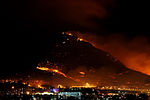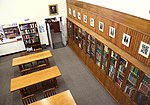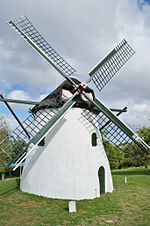The University of Cape Town (UCT) (Afrikaans: Universiteit van Kaapstad, Xhosa: iYunivesithi yaseKapa) is a public research university in Cape Town, South Africa. Established in 1829 as the South African College, it was granted full university status in 1918, making it the oldest university in South Africa and the oldest university in Sub-Saharan Africa in continuous operation.UCT is organised in 57 departments across six faculties offering bachelor's (NQF 7) to doctoral degrees (NQF 10) solely in the English language. Home to 30 000 students, it encompasses six campuses in the Capetonian suburbs of Rondebosch, Hiddingh, Observatory, Mowbray, and the Waterfront.
Although UCT was founded by a private act of Parliament in 1918, the Statute of the University of Cape Town (issued in 2002 in terms of the Higher Education Act) sets out its structure and roles and places the Chancellor - currently, Dr Precious Moloi Motsepe - as the ceremonial figurehead and invests real leadership authority in the Vice Chancellor, currently Prof Mamokgethi Phakeng, who is accountable to the University Council.
A vibrant student community consisting of over 100 societies and clubs caters to diverse interests such as religion, politics, culture, community outreach and sport. UCT prominently appears in national leagues such as, but not limited to, the Varsity Cup. The historic academic, sporting, and political rivalry between UCT and Stellenbosch University brought about the nickname 'Ikeys', originally an anti-Semitic epithet for students of the university.
UCT is consistently the highest-ranked African university in the QS World University Rankings, the Times Higher Education World University Rankings, and the Academic Ranking of World Universities. Its Commerce, Law, and Medicine Faculties are consistently placed among the hundred best internationally. It is the only African member of the Global University Leaders Forum (GULF) within the World Economic Forum, which is made up of 26 of the world's top universities.Five alumni, staff members, and researchers associated with UCT have won the Nobel Prize. As of March 2020, 35 UCT staff members are A-rated researchers according to the National Research Foundation of South Africa (almost 30% of the national total), which is the most prestigious ranking possible in the NRF rating classification scheme, a recognition of researchers who are unequivocally recognised by their peers as leading international scholars in their field for the high quality and impact of their recent research outputs. 88 staff members are part of the Academy of Sciences of South Africa.






